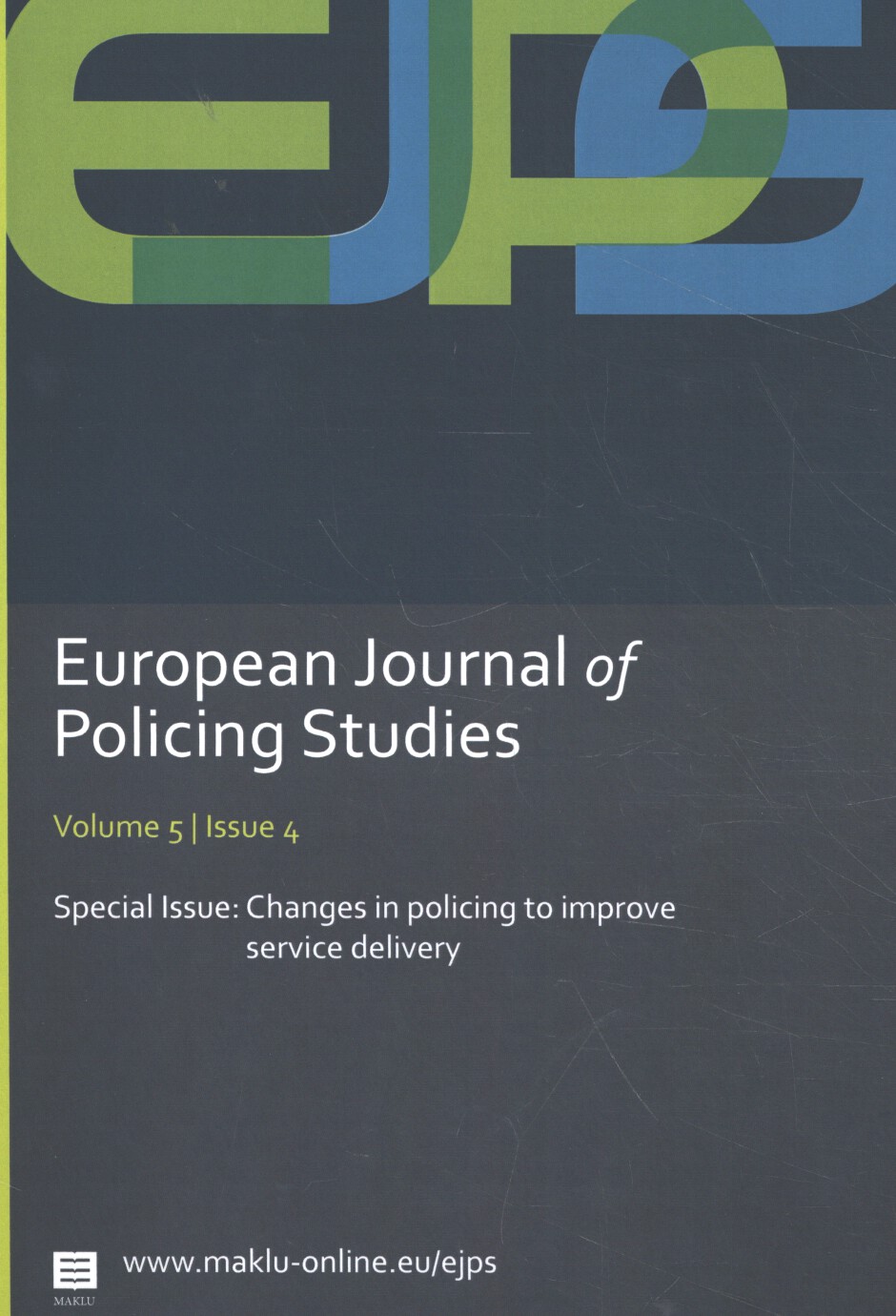Lees
YouBeBusiness
Boekenbon
Impact
Klantenservice
YouBeDo
Wij gebruiken cookies om het bezoek bij YouBeDo.com te verbeteren. Bezoek je onze websites, dan heb je de beste ervaring als je de cookies accepteert.
Vol. 5 issue 4

€ 100,00
wij doneren € 2,48Voor 22.00 uur besteld, morgen in huis
Tot 12% naar een goed doel dat jij kiest
Samenvatting
Introduction Antoinette Verhage, Lieselot Bisschop and Wim Hardyns. Articles
How to Police a Porous Fortress? Monica den Boer.
The purpose of this article is to provide an overview of the way in which the European Union has gradually but steadily built a security architecture based on the control of mobility and borders. Different logics of policing are interwoven in several projects, which are strongly interdependent with technological innovation. Furthermore, the European policing of mobility is primarily performed by mounting surveillance - both inside and beyond European borders - by means of which all forms of movement (transactions, travelling, etc.) are subjected to intensive monitoring by multiple actors who are interlinked through strategies and systems. The main finding is that border policing is shifting in a fundamental way from fixed to fluid, from territorial to virtual, and from physical to technological. Hence, paradoxically, though mobility is strongly promoted as one of the main virtues of the European Union, Europe's precautionary protection may be at ill-ease with the free movement of people. The article seeks to stimulate the knowledge and debate about deeper shifts in Europe's security apparatus and develops this from a law enforcement perspective.
Keywords: Europe; borders; security; mobility; technology
(1) Academic Dean at the Police Academy of The Netherlands, Member of the Committee on European Integration of the Advisory Council on International Affairs and Visiting Professor at the College of Europe in Bruges.
Police Science in Germany: History and New Perspectives Joachim Kersten (1) and Ansgar Burchard (2)
In the German speaking academic world Police Science (Polizeiwissenschaft) is a fairly new and little known area of social science. Accordingly, the academic status of police science is anything but firmly established but rather at a 'hybrid' stage of development. The very combination of policing and academic study/research seems to remain largely incompatible not only to police managers but also to main stream sociology. German police science differs substantially from the Anglo-American-Australian approach. One main difference pertains to legal traditions, others are due to historical and cultural developments that will be taken up in this descriptive essay. However, Anglo-American-Australian police theories have a lot to offer to German and European police scientists and this will be demonstrated. For a future common approach to an evolving European police science similar descriptions will be required from other European countries to establish a comparative foundation of joint EU police studies. Some of the principal dimensions of such a comparison will be sketched in this essay. It concludes with a presentation of empirically based police studies carried out by instructors and Master students at the newly founded German Police University in Münster. Topics are media coverage of clashes between police and demonstrators, a typology of third party intervention in cases of assault in public places and COREPOL (EU FP7), a comparative security research project aiming at an improvement of police-minority relations through means of restorative justice programs.
Keywords: Police Science in Germany; accountability; YouTube; public relations; Facebook; civil courage; violent assaults
(1) Professor and Head of Department of the Department of Police Science at the German Police University (Germany), DAAD Professor at Northwestern University, and guest professor in Maastricht/NL, in Sydney/Australia, and in Tokyo/Japan. (2) Senior Researcher for 'COREPOL' (EU FP7).
Productspecificaties
| Taal | Engels |
| Bindwijze | Paperback |
| Oorspronkelijke releasedatum | 15-01-2019 |
| Aantal pagina’s | 152 |
| Hoofdauteur | Antoinette Verhage |
| Hoofd uitgeverij | Maklu, Uitgever |
| Editie | 1 |
| Gewicht | 314 g |
| Product breedte | 171 mm |
| Product hoogte | 11 mm |
| Product lengte | 241 mm |
| EAN | 9789046609385 |
| NUR | 820 - Recht algemeen |
Reviews
Er zijn nog geen reviews voor dit boek. Schrijf jij de eerste?
Service & contact
You can make a difference
Be the change
Do it now.
YouBeDo is een online winkel voor consumenten en bedrijven met een bijzondere missie: goed doen met boeken. Tot 12% van elke aankoop doneren we aan een maatschappelijk doel dat jij kiest.

Heb lief, doe goed
Alle prijzen zijn inclusief BTW en andere heffingen en exclusief eventuele verzendkosten en servicekosten.
 Onze impact
Onze impact